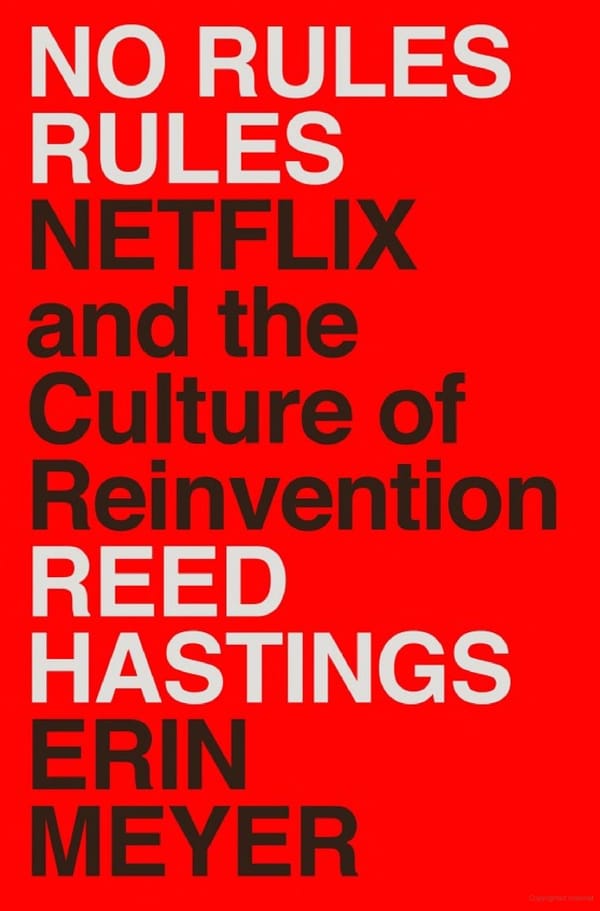Feedback and Hard Conversations
Mastering feedback is critical for any manager or leader. Constructive feedback often comes in the form of a hard conversation. Here are some tips to help you.

“For a leader, giving feedback—both when things are going well and when they aren’t—is one of the most fundamental aspects of the job. Mastering this skill means that you can knock down two of the biggest barriers preventing your reports from doing great work—unclear expectations and inadequate skills—so that they know exactly where to aim and how to hit the target.” – Making of a Manager
In any manager’s journey, you must master feedback and hard conversations. I’ve never seen anyone do this well without practice. Having a high degree of “EQ” or empathy will help. Due to the individuality and how different people can be, you’ll also have to spend a lifetime learning how to do this.
Feedback comes primarily in 3 varieties (from Thanks for the Feedback): appreciative, evaluative and coaching. The first is just recognition of a job well done and what’s going well. Praise is much more effective than criticism in motivation and growth. Evaluative is often what we get out of the review process: how well was the job being done. Coaching is specific advice or techniques on how to get better at the job. When someone asks you for feedback, they may actually just be asking for appreciation.
Hard conversations are a big part of sharing emotionally charged information. We often avoid it because it is painful.
I have observed 3 mistakes in my career regarding feedback.
Mistake 1: Avoidance – not sharing feedback or having hard conversations
This is the most natural mistake. Many of us are trained to be conflict-averse. Sometimes we aren’t quite sure that this feedback will help. Sometimes we feel that we don’t know how to best express the idea. The result is not sharing anything at all.
We might think it is a kindness to spare someone some hard feedback. But the opposite is true. Radical Candor argues that ruinous empathy (similar to the parent that is unwilling to discipline their kids) spares some short term conflict at much greater long term cost. Additionally, if you tolerate poor performance, it sends the wrong message to the rest of the team.
From Making of a Manager:
Feedback actually happens before work starts… Every major disappointment is a failure to set expectations.
What does great look like? Can you articulate that for this project? Can your team? If something is off track, it should be clear to everyone involved. Negative surprises are a sign of management failure. A surprise negative review can easily come with one of 3 reactions: 1) the review is unfair, 2) my manager was negligent in noticing or 3) my manager wasn’t honest along the way. None of those are good!
If you have feedback to give, don’t delay.
Mistake 2: Preparation – not being ready to have this conversation
Now that you’re ready to go have that conversation–hold on for a minute! The next mistake is to not actually find the right time and context to give the feedback.
I strongly believe in praise in public, criticize in private. It has been suggested to me that you can set standards by using criticism in public. I caution you to think carefully if there’s truly a net benefit. The person receiving criticism in public may not trust you again. You’ll be making a very large withdrawal from the emotional bank account. If you’ve built a culture about criticizing the ideas and not the person you may be able to share these standards without withdrawing much. In practice, I have not seen this done often and especially not in larger organizations. One reason is that you may not interact with your counterparts enough to disentangle the idea from the person.
According to Difficult Conversations, feedback comes in three forms: tactical (what happened–what are the facts?), emotional (feelings–are they valid and appropriate?), and identity (what it means about us–are we good, competent, or worthy of love?). The tactical feedback is the easiest to give. Something like “that opening slide was 2 minutes too long” is fairly low stakes and needs less preparation. There, the sooner the better and less preparation is necessary.
Most deep feedback (emotional and identity) will not just be a discussion about the facts. If you are a person’s manager and you’re delivering the feedback, you must be aware of the power discrepancy. That means you need to spend extra effort to make the conversation safe for the transfer of information.
A useful framework here from Difficult Conversations:
- Start with the Third Story – a story an arbiter may use to describe the situation rather than one that contains your point of view
- Acknowledge the other party’s story – spend time understanding where they are coming rom
- Offer your counterpart a role in coming to a solution – think cooperatively, not adversarially
Everyone has their own story and you will be missing information. If you skip the step of incorporating that perspective, you will lose your counterpart.
Mistake 3: Attitude – going in with the wrong intentions or wrong state of mind
If you solve avoidance and have prepared what you want to say, you have one more critical task to get right. That is: prepare yourself. You need to ask yourself why you’re truly having this conversation.
You are likely going to hear things you do not want to hear–you need to be open to feedback about yourself and your contribution to this situation. They may challenge your beliefs, even your identity. From Crucial Conversations you will need to master your internal narratives and understand how you come across. There are 3 signs you’re having or have had the wrong conversation: emotions are escalating, you walk away skeptical, and you’re repeating a previous dialogue. By preparing yourself, you increase the chance that you do not get derailed in the conversation.
If you’re still having trouble in the conversation, Crucial Conversations recommends this to de-escalate and reset:
Step out of the content of the struggle and make it safe. Simply say: “It seems like we’re both trying to force our view on each other. I commit to stay in this discussion until we have a solution that satisfies both of us.”
You may also receive feedback when you are not expecting it. When this happens, Thanks for the Feedback insists that you must avoid wrong-spotting. There’s always something you can point out about the feedback that is incorrect. But if you think back to your underlying purpose–where does pointing out the mistake get you in the long run? The reality is whomever is sharing this feedback is likely to not enjoy sharing that feedback either. If you say why it’s wrong, your counterpart will not feel heard. They are much less likely to share more with you in the future. Instead you should appreciate the feedback.
When you receive feedback, the best (perhaps only?) answer should be:
Thank you for this feedback. You’ve given me a lot to think about.
You have to overcome your instinct to wrong-spot and explain the missing context. While you may be right on the facts, you’ll lose the broader relationship.
Conclusion
Hard conversations are named that way for a reason. You need mastery of a wide range of skills while overcoming many instinctual responses. You need to be ready to pick up on nuance and what is under the surface. For many conversations, you may not get a second chance. And often the conversation isn’t just about the conversation. It can also be about the relationship.
Getting it right is something we should all strive for and may never perfect. I am far from it. Every day I hope to get just a bit better at it. In this, my journey is only 1% finished.
Books referred to in this post:
- Thanks for the Feedback: The Science and Art of Receiving Feedback Well
- Crucial Conversations: Tools for Talking When Stakes are High
- Difficult Conversations: How to Discuss what Matters Most
- Radical Candor: How to Get What You Want by Saying What You Mean
- The Making of a Manager: What to Do When Everyone Looks to You



